A construction schedule can be defined as one of the most significant processes in a given construction project. The schedule developed ensures that the task is accomplished within the scheduled time frame and resources allocated are not exceeded. It is the role of the construction manager to schedule the construction process effectively, ensuring that every single participant, whether it is the contractor, the subcontractor, or even the client, all have similar objectives and work towards achieving these targets. A good construction schedule will be able to outline possible challenges that may arise more accurately, thereby assigning resources appropriately and better managing the time and money constraints beforehand.
The Importance of Construction Schedules
The construction industry of today is in fast-forward mode and one must work against time. A construction schedule is something that even project managers, contractors as well as clients require and this is the knowledge every individual in this field must have. With the creation of a succinct construction schedule, all the team members will avail such a guarantee as all the tasks will come in turn, giving the assurance of resource utilization and completion of the works in the scope of the deadlines. Such an arrangement will also enhance productivity, cost efficiency and the quality standards offshore.
One key benefit of a proper construction schedule is that it encourages open dialogue among team members, lowering the likelihood of any communication problems. While construction schedules break down the tasks in detail, including timelines and resources in their right proportions, they as well assist members to work together, avoid conflicts and encourage the practice of responsibility of each other at every stage in the project period.
The Role of Construction Schedules in Project Management
In the field of project management, few tools are as beneficial as construction schedules. They help allocate resources, gauge performance, and create a timeline for the completion of a specific project. A construction schedule involves a plan regarding the design, the phases of work, timeframes of each rather detailed construction activity, objectives, resources, etc, that is to be employed in constraining labor, plant, and other cost overruns.
Optimal deployment of a construction schedule helps project managers follow the progress of the project, focus on the needs for improvement and take informed and objective decisions based on the health of the project. Hence, they help keep the project on track and within the set goals and timelines to enable stakeholders to benefit from it.
Types of Construction Schedule Templates
A variety of templates exist all over the world, with construction scheduling for a specific purpose and requirements. Such templates help contractors, builders, and project managers structure their efforts in managing their respective projects. Such temples range from residential construction schedules to commercial and industrial construction schedules any other type of construction schedules that pose different levels of issues and difficulties.
Residential Construction Schedules
Even though Construction schedule templates may come in different forms, they are made to suit single family houses, apartment buildings, and any other residential structures. Also, the templates contain timelines that consider the specifics of residential construction works such as working on permits, performing inspections, and passing occupation timetables. It is possible to track labor hours in such templates, track materials, and track the use of equipment so that all the work for large projects is included.
Every construction schedule is uncommon because of the uniqueness of the development and more importantly, a clear understanding of building regulations, laws of zonings and approval processes, is vital in such work. That being said, the templates in this category contain information regarding permit submission and inspections; they also come with regards to building code requirements for the given jurisdiction.
Commercial Construction Schedules
Construction schedule for commercial projects however will be fit for office buildings and retail more and for pure commercial usage. These schedules will have more details and will be more complex because the projects are on a larger scale.
Construction schedule, especially the one used in the somewhat complex world of projects especially commercial constructions, often includes structures which allows for managing large teams, interaction with numerous parties, and monitoring the progress of the multi-activity and long-ending project. It might also contain some network functions such as for instance budgeting, role assignment or motivational structures necessary for risk control since commercial structures tend to have more layers.
Industrial Construction Schedules
Construction schedule of any industrial unit deals with the activities necessary to build or establish works like factory, warehouse and other industrial buildings. Such kinds of templates need high level of details and complexity as such works are massive in size and scope.
The construction schedule of any industrial structure is a tedious process which incorporates a huge task force, involves multiple contractors and the use of sophisticated project schedules geared towards controlling growth of project cost among many other aspects of the management. Construction schedules meant for civil engineering contractors may also have aspects of budgeting, resource control, risk analysis and environmental impact studies, which express the extreme technical and logistic incorporation of civil engineering and construction.
For each one of these templates, contractors, builders, and project managers are frequently faced with specific issues and complexity characteristic of that category. Ulitizing appropriate templates gives them a guarantee successful fulfill their Ankara construction projects.
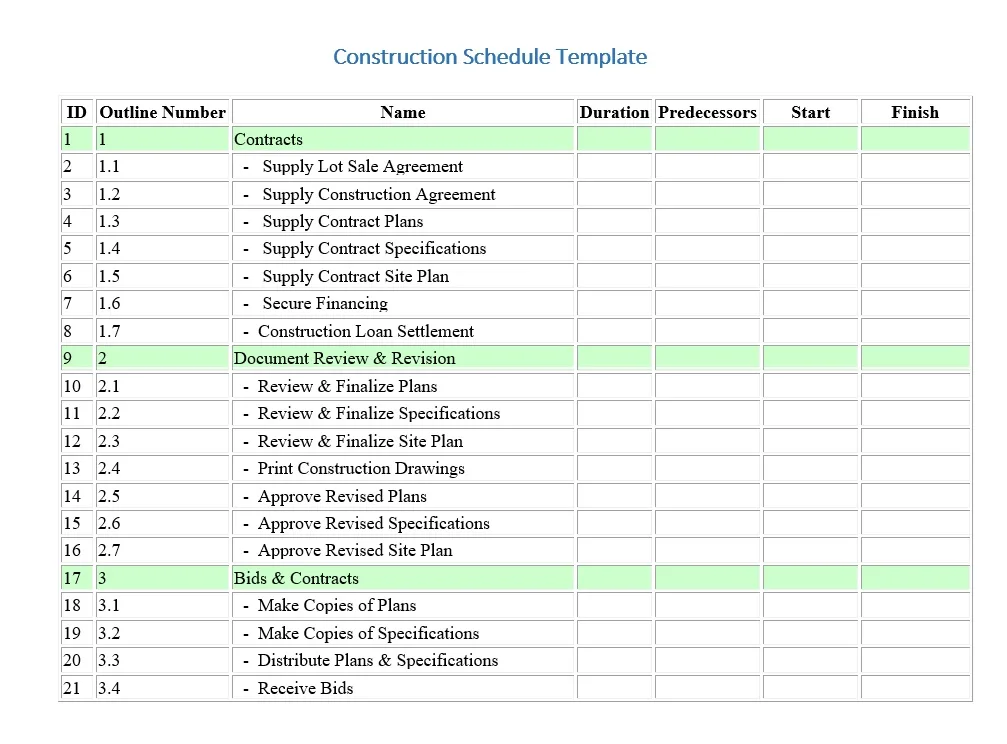
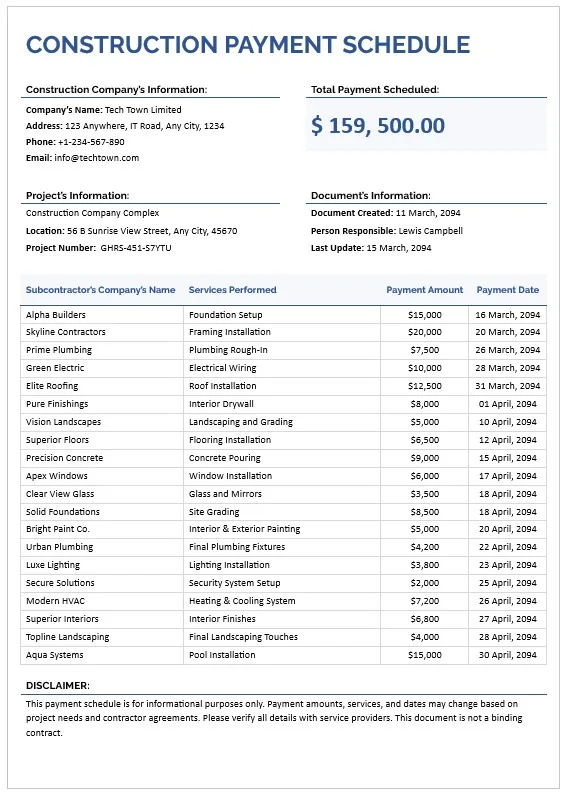
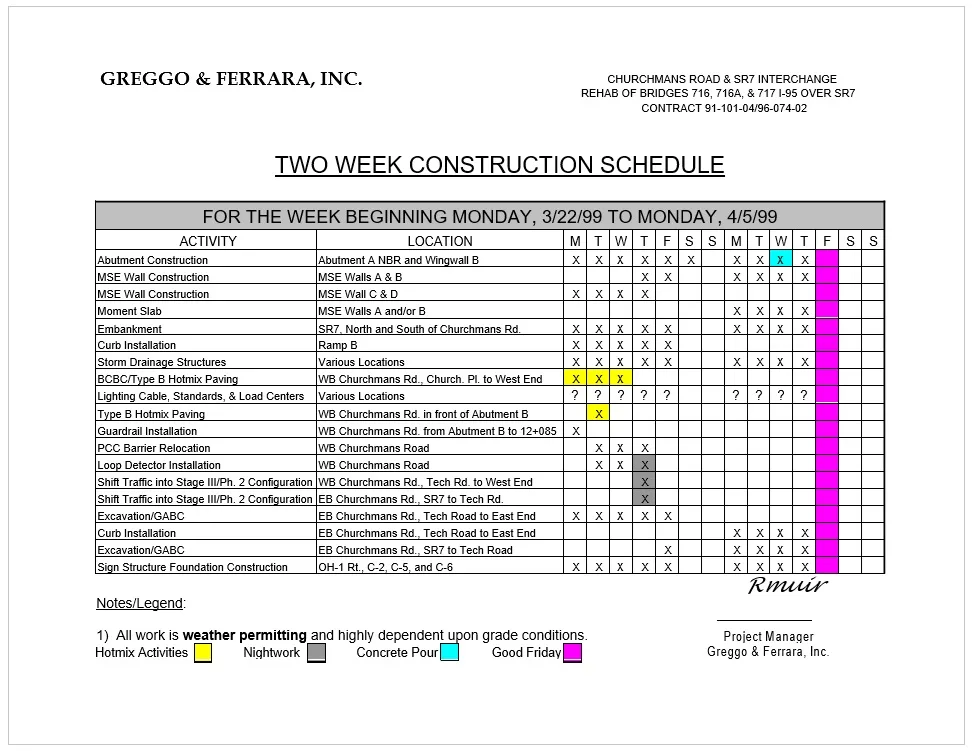
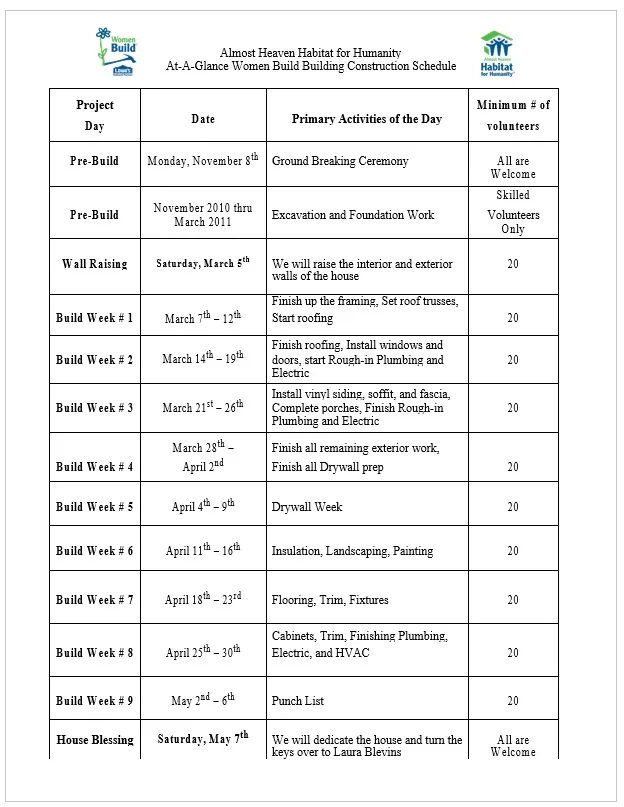
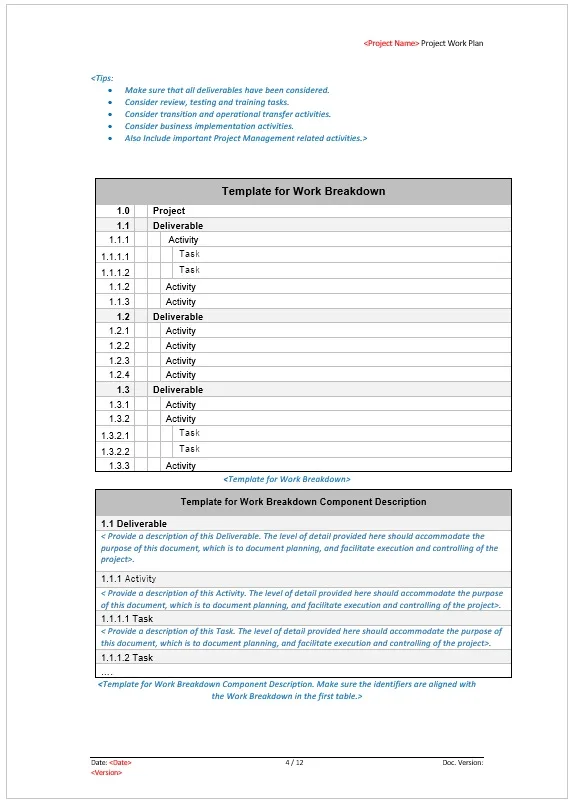
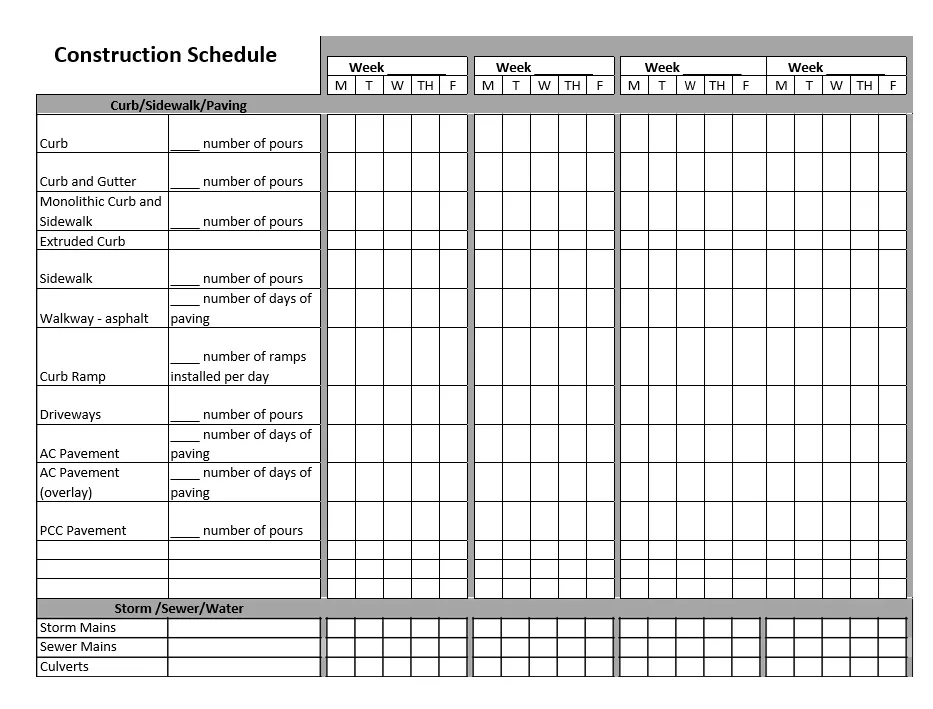
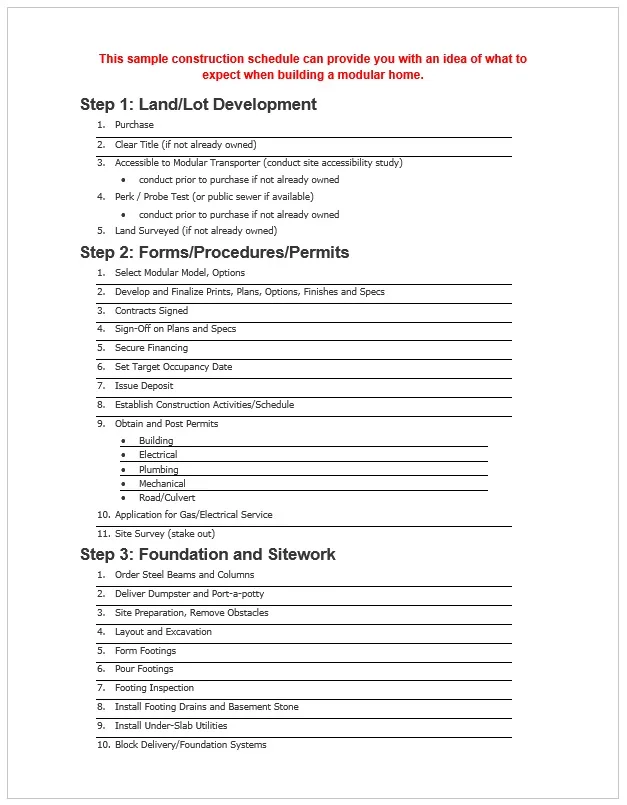
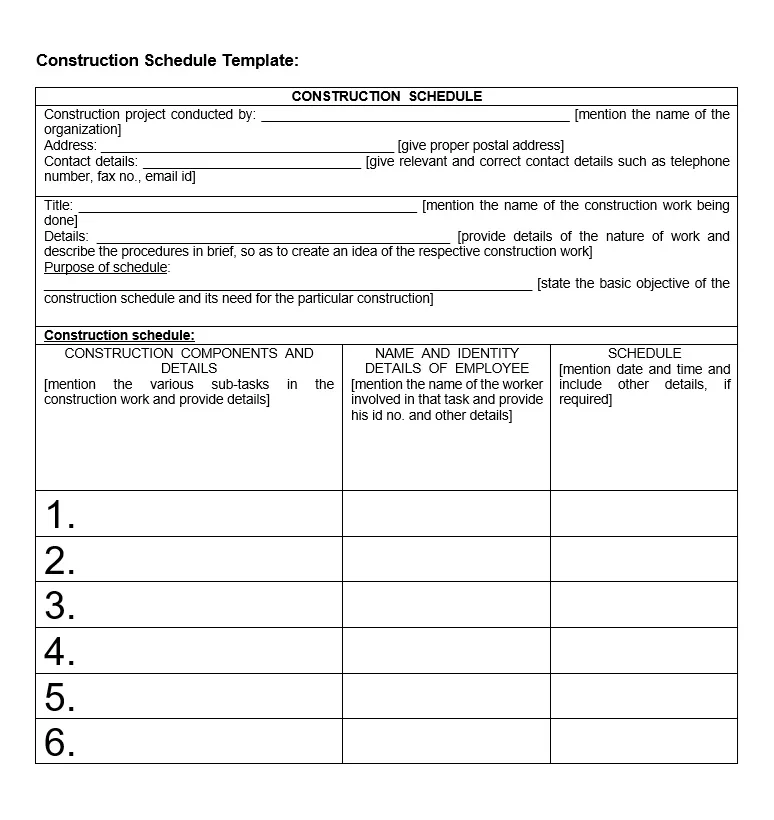
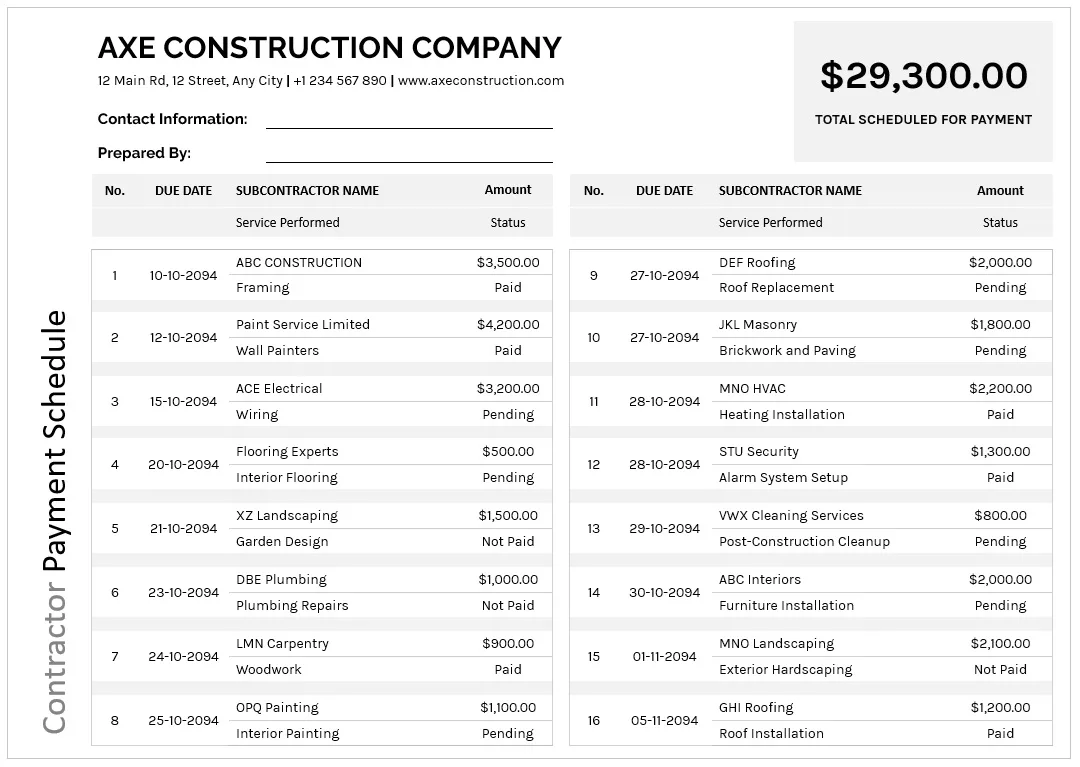
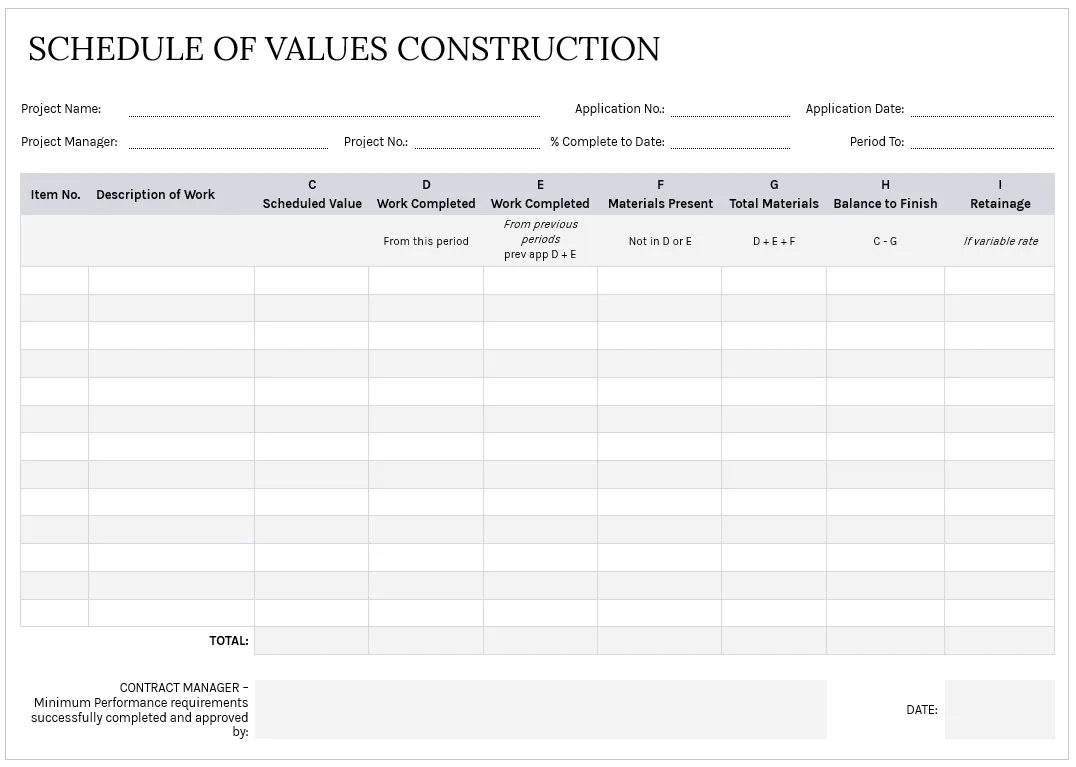
Benefits of Using Construction Schedule Templates
One key benefit that comes with using construction schedule templates is the enhanced transparency and discipline it bestows on project activities thereby enabling construction workers, developers and project coordinators adhere to set timelines and in most cases, avoid last-minute rush or disappointment. With a proper template in place, it is easy for the project team to make sure that all activities regarding the project starting planning completion and handover have been considered.
Improved Communication and Collaboration
It is beneficial to use construction schedule templates since they enable effective information distribution and collective participation of all the members of the team, key people in the audience and customers as well. This can be achieved by making sure that every person understands the difference in the tasks where they need to be completed, the time frame involved as well as the resource required for each task. Because of this, there is less room for interlocking or confusion and more encouragement of team work from the beginning of the project until the end.
Furthermore, construction schedule systems also offer a common platform to monitor the advances made in a project, determine the challenges even before they arise, and take appropriate action with respect to the use of resources effectively. In this way, construction management teams can predict hazards and avoid them, prevent these issues with time regimentation and systematically using floating labor to the greatest extent possible, and ultimately result in better construction schedule.
Enhanced Cost Management and Budgeting
Construction schedule templates provide a number of advantages in relation to cost control and budget planning as well. These templates provide a detailed analysis of costs, materials, equipment, and usage of relevant permits, and therefore, enable teams to adequately spot potential areas of reducing costs, eliminating inefficiencies and allocating resources in a more efficient manner.
Besides the construction schedule templates furnish a well-defined system which companies use for controlling their costs, billing and payment such that there appears no risk to the finances for the duration of the project. This enables contractors, builders, and project managers to be able to take budget allocation decisions based on drives without fear of cost cutting which can include aggregate reduction in terms of finances.
Optimized Resource Allocation and Project Delivery
Construction schedule templates also help project teams in optimizing the allocation of resources and delivery of the project. With a detailed analysis of the task dependency, timelines and resource requirement, such templates also enable efficient allocation of the resources and elimination of waste while reducing the delays.
Not only that, construction schedule templates help to build a coherent road map, which gives a form as to which level their current tasks are at, and allows them to anticipate any obstacles that might come their way and how such could be handled. This allows the team to act quickly, should any change in time of the project or expenses happen so that the project remains efficient and hits the targets.